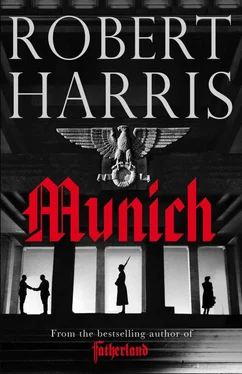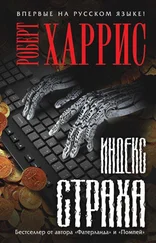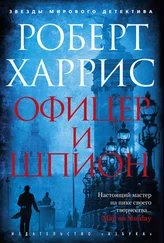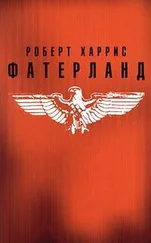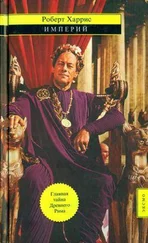Sauer said, ‘You replaced a colleague on Herr Chamberlain’s plane at the last minute, I believe?’
‘That’s right.’
‘Might I ask why?’
‘Because I speak better German than he does.’
‘But surely that was known from the start?’
‘Everything was a bit last-minute.’
‘And there are people from your embassy in Berlin who can act as translators.’
Hartmann said, ‘Really, Sauer, I don’t think you have the right to cross-examine a man who is a guest in our country.’
Sauer ignored him. ‘And before today you and Hartmann last met when, may I ask?’
‘Six years ago. Not that it’s any of your business.’
‘Good.’ Sauer nodded. Suddenly his confidence seemed to be running out. ‘Well, I shall leave you to talk. No doubt Hartmann will tell you everything you want to know.’ He clicked his heels, bowed slightly, and walked away.
Legat said, ‘That was ominous.’
‘Oh, take no notice of him. He is determined to expose me. He will keep digging until he finds something, but he hasn’t got anything yet. Now we must assume we are being watched, so we must play our parts. What is it you want to know?’
‘Can the British press send in a photographer to record the signing? Who should I ask?’
‘Don’t bother. It has already been decided. The only still camera permitted in the room will belong to the Führer’s personal photographer, Hoffmann, whose assistant, Fräulein Brown, so rumour has it, our not-so-celibate Leader is fucking.’ He put his hand on Legat’s shoulder and said quietly, ‘I apologise if my actions tonight embarrassed you.’
‘Think nothing of it. I’m only sorry it wasn’t more fruitful.’ He touched the front of his inside pocket where the memorandum was folded into three. ‘What would you like me to do with—?’
‘Keep it. Hide it in your room. Take it back with you to London and make sure it reaches a more responsive audience.’ Hartmann squeezed his shoulder and released it. ‘Now for both our sakes we should stop talking, and move apart. I’m afraid it would be better if we did not speak again.’
Another hour dragged by.
Legat waited in the British delegation’s room with the others while the documents were finalised. Nobody spoke much. He kept to himself in the corner. He found to his surprise that he could contemplate the imminent wreckage of his career with equanimity. No doubt this was the anaesthetic of tiredness: he was sure that when he got back to London he would feel differently. But for now he was sanguine. He tried to imagine telling Pamela that her dreams of becoming the chatelaine of the Paris embassy were no longer feasible. Perhaps he would leave the diplomatic service altogether. Her father had once offered to help find him ‘a nice little berth in the City’ — maybe he should take him up on it? It would solve their financial worries, at least until war came.
It was half-past midnight when Dunglass finally put his head round the door.
‘The agreement’s about to be signed. The PM wants everyone to be there.’
Legat would have preferred not to attend. But there was no escape. He rose wearily from his chair and walked with his colleagues along the corridor towards Hitler’s study. At the door of the big office a crowd of minor players — aides, adjutants, civil servants, Nazi Party officials — had gathered. They parted to let them through. Inside, the heavy green velvet curtains had all been drawn but the windows must have been opened because Legat could hear the movement of the crowd outside quite distinctly, like a gently moving sea, occasionally ruffled by eddies of shouts and singing.
The room was packed. At the opposite end, standing around the desk, were Hitler, Göring, Himmler, Hess, Ribbentrop, Mussolini and Ciano. They were studying a map — not seriously, it seemed to him, but for the benefit of a photographer using a handheld newsreel camera. He filmed them first from one side and then scampered round to do the same from the front, while Chamberlain and Daladier watched the proceedings from the hearth. All eyes were on Hitler. He was the only one talking. Occasionally he pointed and made sweeping gestures. Finally, he folded his arms and stepped back and the filming ended. There was no sound-recording equipment, Legat noticed. It was like watching the making of some strange silent movie.
He glanced at Chamberlain. The Prime Minister seemed to have been waiting for this opportunity. He left Wilson and went forward and spoke to Hitler, who listened to the translation, nodded vigorously a couple of times. Legat heard the famous harsh voice: ‘ Ja, ja .’ The exchange lasted less than a minute. The Prime Minister returned to the fireplace. He looked pleased with himself. For an instant his gaze rested on Legat, then almost immediately switched away to Mussolini, who had come over to talk to him. Göring waddled around, rubbing his hands. Himmler’s round rimless spectacles flashed in the light of the chandelier like two blind discs.
After another minute or two, a small procession of officials entered, carrying the various documents that made up the agreement. At the back of the group was Hartmann. Legat noticed how carefully he avoided looking at anyone. The map was rolled up and removed from the desk and the papers were laid out. The photographer, a thickset man of about fifty with wavy grey hair — Hoffmann, presumably — gestured for the leaders to stand together. They grouped themselves awkwardly with their backs to the fireplace: Chamberlain on the left in his pinstriped suit, with his watch chain and high-winged collar like a waxwork in a museum of Victoriana; Daladier next to him, mournful, also pinstriped but smaller and with a protruding stomach; then Hitler, impassive, pasty-faced and dead-eyed, with his hands folded together over his crotch; and at the end, Mussolini, a brooding expression on his large fleshy face. The silence was palpable, as if nobody wished to be there, like guests at an arranged wedding. The moment the photograph was taken the group broke up.
Ribbentrop indicated the desk. Hitler went over to it. A young SS adjutant handed him a pair of spectacles. They changed his face in an instant, made him look fussy and pedantic. He peered down at the document. The adjutant gave him a pen. He dipped it into the inkstand, examined the nib, frowned, straightened and pointed irritably. The inkstand was empty. There was an uneasy shifting in the room. Göring rubbed his hands together and laughed. One of the officials pulled out his own fountain pen and gave it to Hitler. Again, he bent forwards and studied the paper carefully, then very quickly scribbled his signature. One aide rolled a curved blotter over the wet ink, then a second lifted away the document and a third slid another sheet of paper in front of Hitler. He scribbled again. The same procedure was repeated. It went on for several minutes, twenty times in all — a copy of the main agreement for each of the four powers, along with the various annexes and supplementary declarations — the fruit of some of the most creative legal brains in Europe, which had enabled them to slide over matters of contention, postpone them for later haggling, and reach a settlement in less than twelve hours.
When Hitler had finished, he tossed the fountain pen casually on to the desk and turned away. Chamberlain was the next to step up to the desk. He too put on a pair of spectacles — which he was as reluctant as the Führer to be seen wearing in public — took out his pen, and scrutinised what he was about to sign. His jaw worked slightly back and forth and then carefully he wrote out his name. From outside came a burst of cheering, as if the crowd knew what was happening at that moment. Chamberlain was too absorbed to react. But Hitler grimaced and gestured to the window and an adjutant parted the curtains and closed the sash. In the shadows at the back of the study Hartmann watched it all without seeing, his long face blank and ashy with exhaustion — like a ghost, thought Legat, like a man already dead.
Читать дальше
